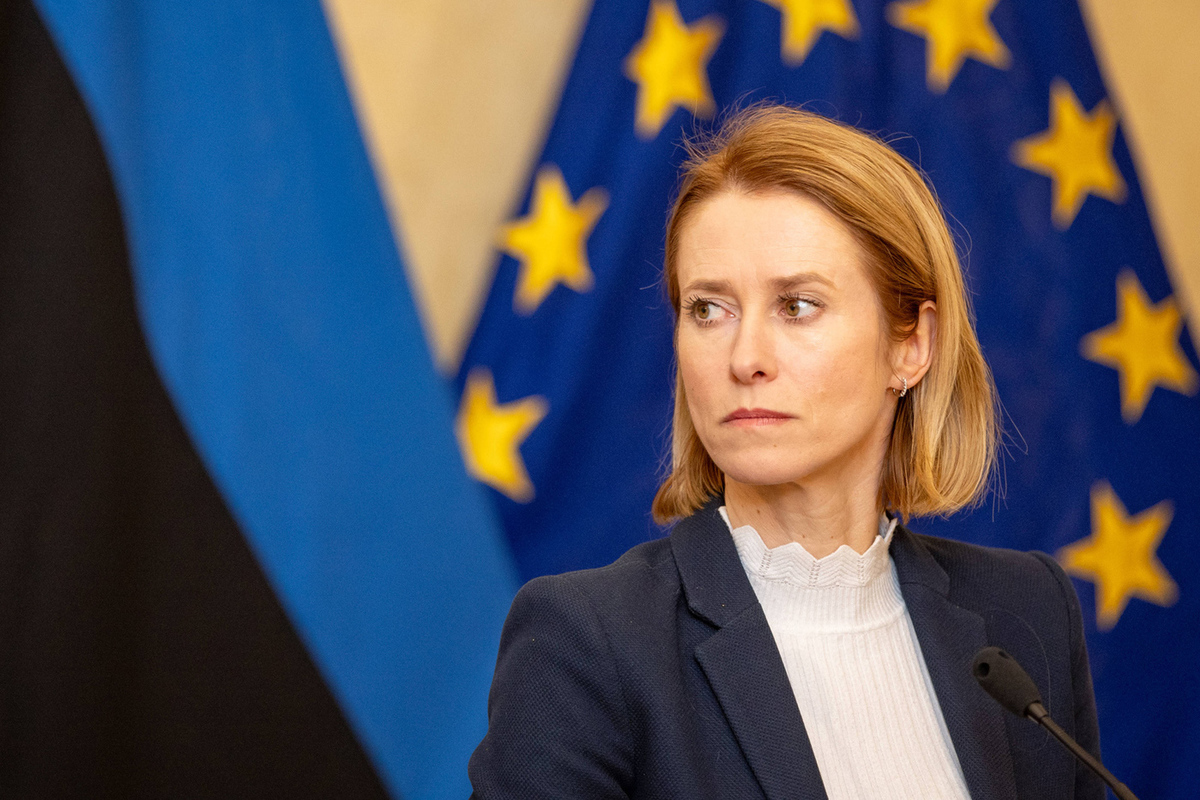Estonia has proposed a “relatively fair” way to leave Russia without money: issue Eurobonds worth €100 billion
[ad_1]

Analyst Razuvaev: “This seizure will lead to the nationalization of European assets in the Russian Federation”
The EU proposed issuing bonds worth €100 billion to protect against Russia. This initiative was made by the Prime Minister of Estonia Kaja Kallas. The politician emphasized that the countries of the union need to increase investment in the defense industry and we must all move in this direction together. France expressed solidarity with the Estonian prime minister. However, other countries such as the Netherlands and Germany may oppose such an idea. They fear that if Russia’s frozen reserves become collateral for Eurobonds, Russia’s reaction will be unpredictable.
The European Union should develop a plan for issuing Eurobonds worth €100 billion, the proceeds of which will be used for investment in the defense industry, suggested Kaja Kallas. “We are in a situation where we need to invest more and explore what we can do together, because the bonds that will be issued by individual countries on their own are too small,” said the head of the Estonian government.
In her opinion, the EU needs to develop the military industry and conclude long-term contracts for the supply of weapons to Kyiv both from its own reserves and from sources around the world.
What will ensure the reliability of Eurobonds has not been announced, but it is not difficult to guess. It is no coincidence that earlier the Russian Foreign Ministry warned that Russia was preparing response measures in the event that the European Union used Russian frozen sovereign reserves as collateral for bonds that could be issued in order to raise capital to finance the needs of Ukraine.
“MK” discussed the reality of the EU plan and its possible consequences with Alexander Razuvaev, a member of the supervisory board of the Guild of Financial Analysts and Risk Managers.
-What factors prompted the Prime Minister of Estonia to make such a proposal?
-European countries have big problems. For example, recession and so on. Many people have very serious public debt. Let me remind you that 10 years ago a similar story happened with the PIIGS group, which included Portugal, Italy, Greece and Spain. The acronym PIIGS is in principle used to refer to a group of countries that, during the European debt crisis, were unable to independently refinance their public debt or rescue their over-indebted banks. Now, apparently, history is coming back. Scenarios are even being considered in which some EU countries could leave the euro zone. And if any country leaves the euro zone, we can expect a serious fall in the euro against the dollar and other world currencies.
-If such securities appear, will they be in demand among Europeans?
-What kind of bonds these will be is not yet very clear. Will they be issued by a specific country or will they be some kind of general paper? How will they be extinguished? One thing is clear that EU states are trying to borrow money for defense. But given that the EU’s chances of winning are extremely small, I don’t think that such securities will be in demand. Yes, for political reasons such bonds may be assigned a rating, but ordinary people understand everything. Buying something like this is a dubious story. The profitability in this case will also depend on the rating: the more reliable the security, the lower the profitability.
-What can ensure the reliability of such bonds?
-Formally, they automatically become more reliable if frozen Russian international reserves are used to back them up. But this will be, one might say, a seizure of our funds. In response, Russia may immediately begin to challenge the actions of the EU and begin nationalizing European assets in the Russian Federation, primarily those that are on the Moscow Exchange. In any case, such conversations in Europe indicate that things are not going well for them and the defense industry is costing a pretty penny.
-An interesting question is whether this will be an exclusively voluntary story, or will it be a mechanism for assistance to the state on the part of companies that will be secretly asked to make such investments?
-The authorities can force their own banks to voluntarily and compulsorily buy such securities. And this already risks provoking a banking crisis. 100 billion euros is a very large amount. The issue of such securities may increase risks for the euro in principle and become a factor in the depreciation of the single European currency. All in all. Whichever way you look at it, the story is very murky.
[ad_2]
Source link






